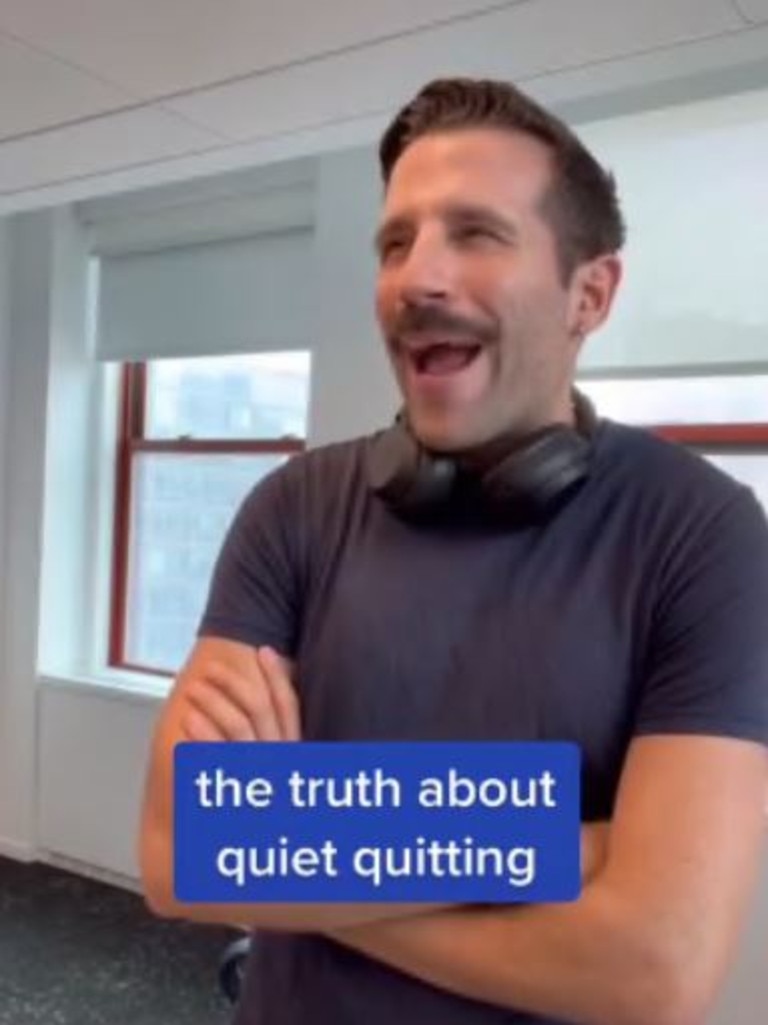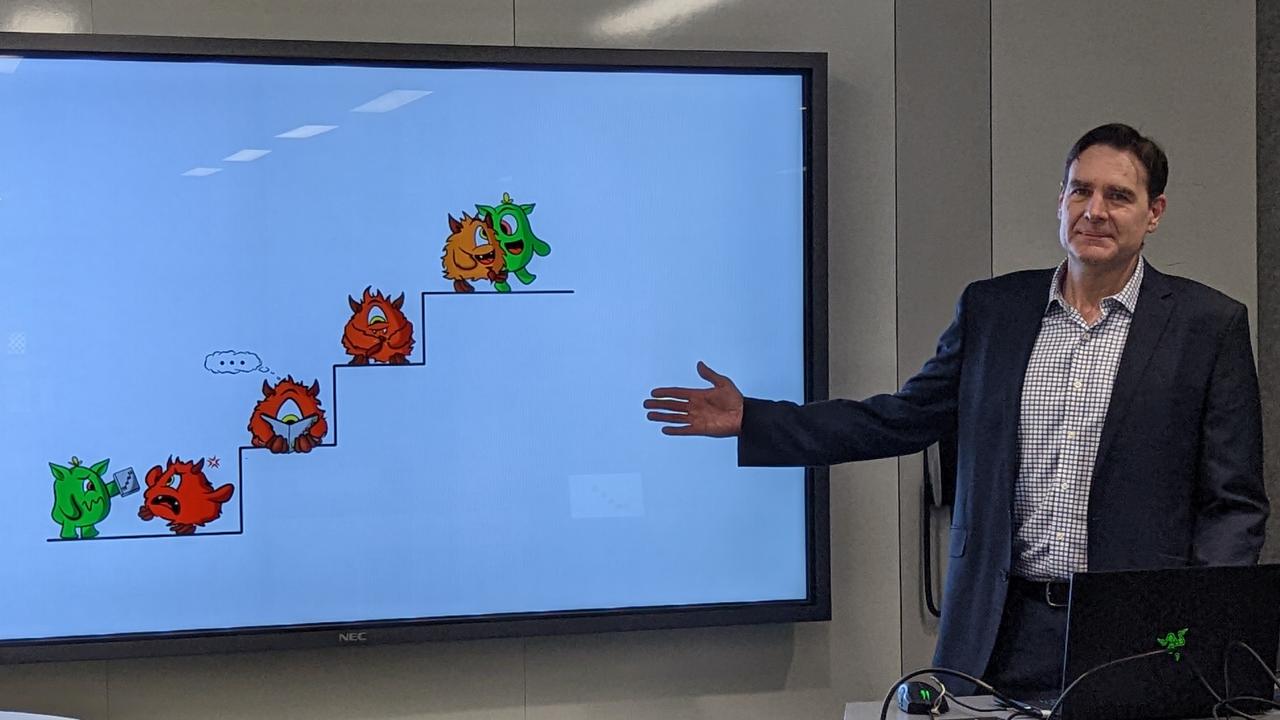Australian expert reveals the truth about quiet quitting trend
Australian workers who embrace the “quiet quitting” trend may not realise this surprising impact of their actions, an Australian expert says.

Australians who embrace the “quiet quitting” trend may actually be doing their bosses a favour, a leading people management specialist says.
Dominic McLoughlin, author of the book Be A Better Manager in 5 Minutes a Dayand an experienced educator and consultant, has worked with thousands of bosses over his 20-year leadership career, so he knows a lot about quiet quitting.
Sydney-based Dr McLoughlin, 50, who is Fellow of the Institute of Managers and Leaders, the Australian Human Resources Institute and the Higher Education Academy, said the movement has both positives and negatives.
“If we think of quiet quitting as stopping those ‘above and beyond’ activities that help a team to do well over time, then it’s not a good thing and is a symptom of a lack of commitment to the role or the organisation,” he said.
“However, if someone is pushing back against being contactable 24 hours a day, then that is positive – about setting appropriate boundaries – not letting work take over your entire life. “Sometimes quiet quitting is a precursor to someone actually leaving, and, if it’s not the right role, that can also be a good outcome.”
Dr McLoughlin said that for anyone considering quiet quitting, or if a manager suspects an employee is engaging in such behaviour, it’s important to clarify the situation.
“A lot of the things that make a difference in the workplace are unwritten,” he said. “For example, no one puts into the contract that you have to say ‘good morning’ to your colleagues, and yet social interaction can make or break a team.
“Given all of the disruption caused by working from home and other changes, it is important to revisit some of these unwritten understandings about how people work together. Have a conversation one-to-one about how you would like to interact, how often and whether it should be virtual or face-to-face.”
He also said he relates to the quiet quitting trend as he himself has considered doing so in the past.
“The first time I considered quiet quitting was early in my career,” he said. “I had a young family, so I always came into work early, hard a short lunch, and tried to leave at 5pm each day.


“One day the finance manager made a rude comment about ‘always leaving early’. I found this very demotivating and wondered why I bothered coming in early and working hard. Fortunately, my manager went and had a word to him, and resolved the issue,” he said.
“The second time, I was given a ‘promotion’ that meant that I was actually doing two jobs and there was no way I could complete all of the work to a decent standard, no matter how much effort I put in.
“I eased back in some areas and looked for another job. In that case I actually got another role and resigned. Interestingly, the company then changed the amount of work I had to do and increased my pay, so I stayed in the end.”

Mistakes bosses make
In his book, Dr McLoughlin also talks about the worst kind of bosses to work for, and those that micromanage stand out from the pack.
“It is surprisingly common for bosses to feel that they have to have all the answers, that they can’t make a mistake, that everything has to be perfect,” he said.
“However, this can often lead to micromanagement and becoming overwhelmed because there is too much to do and to check. Instead, the best managers are able to foster a learning environment, where team members are not afraid to make mistakes, but are focused on learning from them.
“Managers need to focus much more on how the team works together, on the outcomes, rather than falling into micromanaging the work of each team member.
“Most importantly, the best managers could admit when they had made a mistake and set about improving.”
Post-Covid challenges
Dominic said that leaders are finding that virtual workplaces are challenging, making building trust difficult due to a lack of incidental conversations and lack of cues from body language.
“The role of managers is more difficult because building relationships and trust is more difficult in the virtual and hybrid environment, and the same is true for team members,” he said.
“Some teams have never met their colleagues face-to-face. Cues from body language are often absent in much of the communication that takes place virtually – especially when people have their cameras off and are multi-tasking during meetings.
“There are less opportunities to ask a question ‘across the cubicle’, or to have a quick brainstorm while getting coffee. Many of the incidental conversations that make a workplace enjoyable do not happen when you have to ‘make an appointment’ just to catch up.”


The importance of trust
Dr McLoughlin says the best question to ask about your manager is, “Do I trust them?”
Similarly, the best question for a manager to ask about their team is, “Do they trust me?” This is because when there is trust in the workplace, there is open sharing of information – what is really going on – good or bad.
“When trust is present, people are prepared to put in the extra effort that is needed to help out in busy times and to ensure that the whole team succeeds,” he said. “If that trust is not present, the team is unlikely to succeed in the long term.”





